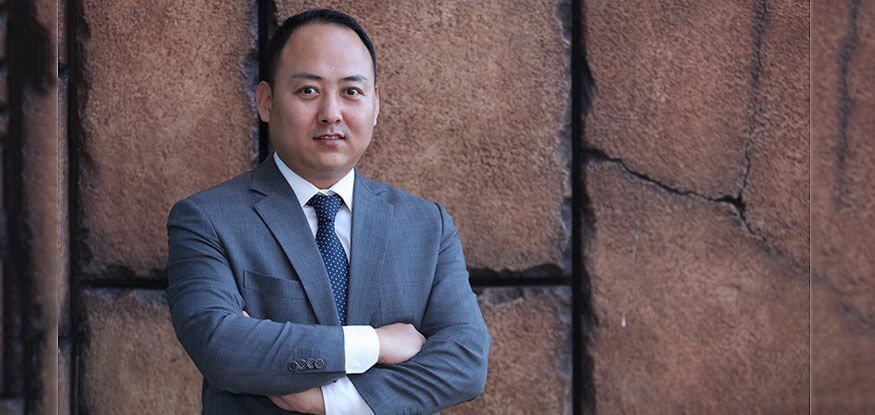Across the Middle East, many countries are now starting to accelerate their economic recovery efforts having put in place strong public health policies to combat the spread of COVID-19.
As this economic recovery builds momentum, it also spotlights a bigger question about the type of future we are creating. From global experience, governments, enterprises, and analysts all agree that robust ICT infrastructure can help economies to thrive and do so sustainably.
Most businesses cannot simply “go back” to how things were before—nor should they. There have been fundamental changes in our society. E-commerce, for example, has skyrocketed and taken on a very important role in serving communities. Governments have needed to strengthen communication channels to share public health notices with citizens, and academic institutions have had to rapidly shift to online platforms. Many more adjustments are likely to come in 2020.
Rather than gazing back, we must now look with clear eyes at what new opportunities lay ahead, transforming industries to be both more resilient and more sustainable in the long-term.
One such opportunity is how we approach humanity’s impact on the environment. We have been reminded during COVID-19 just how much our status quo was impacting the environment. As a result of society’s adaptations to COVID-19, for example, some experts estimated that the amount of carbon dioxide humans generated daily in April 2020 was 17% less compared to the daily average for 2019. UN Secretary-General António Guterres also recently stressed that “we must keep our promises for people and planet” in line with the 2030 Agenda for Sustainable Development.
With so many industries now rebuilding their operations in the wake of COVID-19, there is a genuine opportunity to push more sustainability practices to the fore. Information and communication technologies (ICT) will be at the heart of this recovery. Experts at the World Economic Forum have recently noted how digital services are growing in importance as a result of COVID-19, permeating an increasing number of sectors and activities. Within the Middle East, countries like the UAE have already confirmed that the second part of its two-phased recovery strategy is designed to advance growth with a high focus on the digital economy, including technologies such as AI, 5G networks, and the Internet of Things (IoT).
In the Middle East, we have already seen these technologies enhance areas like e-healthcare and virtual education, with stronger digital ecosystems creating new capabilities for the oil & gas sector, ports, manufacturing, and more. Moving forward, we foresee substantial developments in four additional areas—electricity supply, transportation, building design, and within the technology sector itself—that will help re-orientate Middle East economies towards more sustainable practices.
When looking at electricity supply, many communities have started to use electricity for different activities—and in different places—during the COVID-19 pandemic. As that allocation shifts again with communities opening up, investing in advanced AI solutions and data analytics can provide real-time predictions on how much electricity is needed where, allowing for a more efficient and precise balance of demand and supply from the grid. The deployment of more smart meters in homes can also provide people with greater transparency in terms of their electricity usage, enabling them to keep within a range that is both affordable and environmentally conscious.
Transportation networks have also been greatly impacted by COVID-19, and their reboot will have major environmental implications. Last year the Intergovernmental Panel on Climate Change (IPCG) estimated that transport made up around 23% of global carbon emissions. With more cities and borders opening back up, advanced ICT solutions can help industries to adopt smart scheduling and routing of freight operations, reducing the number of trips needed and in turn cutting down their emissions. As city centers also reopen businesses and public spaces, smart parking systems can help reduce congestion and unnecessary time on the roads, while at the same time supporting physical distancing policies.
Building design will be another key area where ICT can contribute to a green recovery plan. A building’s energy consumption, for instance, can be significantly reduced by using AI and smart camera solutions to analyze factors such as weather forecasts and building occupancy, especially as people start to return to offices. This real-time intelligence comes in handy in managing things like air-conditioning or lighting systems, ensuring they are not burdened unnecessarily during this recovery period.
Underscoring all of these applications is driving sustainability within the ICT industry itself. Technologies like 5G are already helping to reduce the footprint of telecom networks. By 2025, we estimate that carbon emissions of the ICT industry per connection will drop by 80% compared to 2015 levels. ICT-enabled power saving and reduction of carbon emissions will far exceed the industry's own power consumption and carbon emissions, so that by 2025, this will be around 11 times higher than the current level. Realizing these gains will, however, require stronger policy support for ICT standards, as well as expanding the Middle East’s ICT talent ecosystem.
Some of the aforementioned scenarios may be ambitious. But now is absolutely the right time to be inspired in our pursuits. Never before has ICT been called upon as it has during the COVID-19 pandemic. These examples in electricity supply, transportation, building design, and ICT infrastructure are in fact possible with open collaboration. New partnerships between telecom service providers, technology vendors, and businesses can seize these opportunities. By doing so, technology’s value in “greening” the economic recovery of the Middle East can be both significant and long felt.
Author: Li Xiangyu (Spacelee), VP of Public Affairs and Communication, Huawei Middle East

